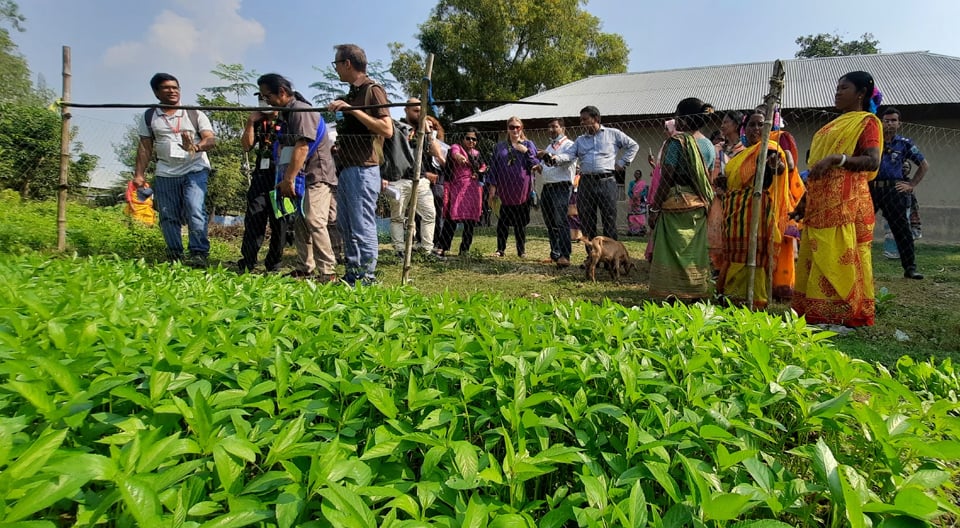
RAJSHAHI, Nov 12, 2022 (BSS)- Around 4,600 marginalized families, most of
them are ethnic minorities, have started improving their living and
livelihood conditions through various need-based income generating activities
in the region.
Prior to this, they were given humanitarian support, including monetary and
income-generating training and assets as emergency response around the last
one and half years.
The stimulus support was given with intervention of a project titled
"Resilience to Economic Volatility of Indigenous and Vulnerable Populations
through Empowerment (REVIVE)" so that the target group beneficiary households
can recoup their losses caused by the Covid-19 pandemic.
They were also motivated to improve hygiene practices for protecting them
from infection of the deadly virus through providing around 2,500 hand
washing devices.
The project is being implemented in six unions of Nachole and Gomostapur
upazilas in Chapainawabganj district.
DASCOH Foundation has been implementing the project in cooperation with
HEKS/EPER supported by Switzerland since July, 2021 for contributing to the
holistic development of disadvantaged communities, particularly the ethnic
minorities.
The ultimate goal of the two-year project is to contribute to the economic
recovery and resilience of indigenous and other marginalized communities.
A 15-member foreign delegation led by HEKS/EPER Country Director Dora
Chowdhury, held learning and experience sharing meetings with many of the
beneficiary groups in Jhikra and Gosaipur villages in Nachole upazila during
a three-day visit that ended on Friday.
They also visited various forms of income-generating activities, including
homestead and vertical gardening, sweet potato cultivation, napier grass
field, net house, cloth business and tailoring, goat rearing, fan making by
palm leaf and vermi-compost, during the visit.
Narayan Chandra, coordinator of the project, said they have divided the
beneficiary households into different groups by primary selection of
beneficiaries through social mapping, wellbeing ranking and prioritization
for successful implementation of the project.
Each of the households was brought under cash incentives worth Taka 4,000.
They were imparted training on various income-generating activities,
including agriculture, vegetable farming, homestead gardening, fisheries,
livestock, vermin-compost and horticulture as per their interest and choice.
Apart from this, the beneficiaries were given post-training materials and
logistic support so that they can engage themselves in the income-generating
activities for uplifting their living and livelihood conditions after the
best use of their knowledge acquired from the training.
SM Fakhrul Basher, director of DASCOH Foundation, told BSS that the project
has a provision of establishing market linkage between the beneficiaries and
the line departments for generating a market chain as well as value chain of
the farm products.
Emphasis has been given on strengthening coordination and collaboration among
the project stakeholders and local authorities.
He said the project is intended to enhance sustainable livelihoods and
climate resilience through economic and social empowerment.
Basher also said they are also working on improving waste management for
alternative livelihoods and reducing environmental degradation.
Dora Chowdhury said the project is expected to help improve social inclusion
and human rights situation of indigenous and other marginalized communities
as long term impact.